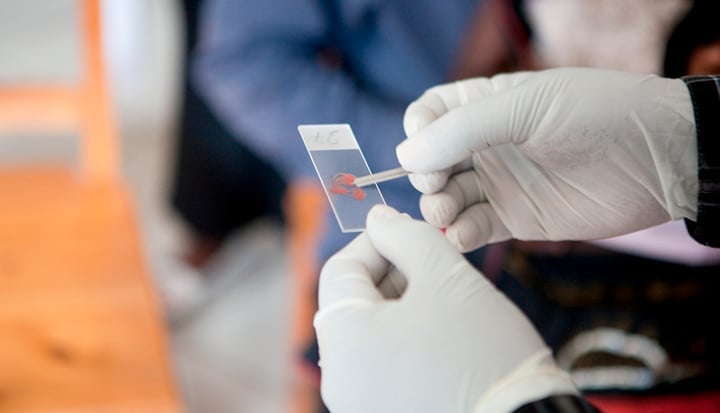There is an African proverb which says: “If you want to go fast, travel alone. If you want to go far, travel with others.” Travelling fast is all very well. But to go far – to secure genuine, long-lasting development that helps people live healthier, more productive lives – then travelling with others is paramount.
Travelling together is essential to untying the knot of economic challenges that compromise the health and future of many African families. Poor supply chains, high cost of medicines and a lack of healthcare facilities in rural areas can all limit their health and productivity. Pooling resources and expertise to tackle these barriers to healthcare could help secure healthier lives and livelihoods.
Health and prosperity are, after all, interlinked. If people are healthy, they are better able to work. This can spur economic growth, which can in turn promote more investment in healthcare – a ‘virtuous circle’. By working together, it is possible to create better organised and more accessible health systems. Through this, we can generate healthier communities; more sustainable livelihoods; and support business.
This is where Barclays and GSK’s new partnership comes in. Collaboration is a part of our everyday business. Barclays works with not-for-profit organisations to develop access to basic financial services through its Banking on Change programme. GSK works with fellow companies and not-for-profits to accelerate development of new medicines and promote access to health.
But now, we are working together. Under a new partnership, we are joining forces to help remove some of the financial barriers to healthcare in Africa. The imperative is writ large: sub-Saharan Africa bears 24% of the global disease burden, but commands less than 1% of global health expenditure. Our aim is to improve access to effective, affordable care. At the same time, we want to help improve economic conditions for growth.
The partnership plans to use four key measures to bolster government efforts to improve access to healthcare. Each measure unites GSK’s experience in delivering healthcare with Barclays’ knowledge of financial services, and builds upon our current operations.
Our work starts in Zambia. There, we hope to reach one million people by improving access to healthcare and creating sustainable jobs. The challenges are stark. Around two-thirds of Zambia’s population live in poverty. Preventable diseases such as diarrhoea remain among the biggest killers of young children. But, these challenges are not insurmountable.
We will aim to support the development of a private sector supply chain, strengthening the role of small businesses. This could help make medicines more affordable and reach more remote communities.
People often have to travel long distances to their nearest clinic. The partnership will also explore working with partners to establish health outlets run as small businesses in rural areas.
Medicines also need to be affordable to those who live on low incomes. So, the ambition is to pilot affordable micro health insurance that would cover small scale, essential health services for individuals and families at an affordable, low cost.
To enable people to make informed decisions about their health, there are also plans to strengthen health education through community finance networks. This could reduce the risk of illness and mitigate its effect on poorer communities.
Work on these measures has already begun. We have mobilised our team on the ground; have made a number of field trips; and are meeting with governments and other organisations to establish how to support their plans to improve access to healthcare and support economic development. Learning is a central plank of partnership. No single organisation has all the answers and must draw on the experience of others to shape its interventions.
The pilot programme in Zambia will last three years, focussing on the eastern province. If successful, the project will create a model that could be replicated throughout Zambia and then across Africa. Creating changes that could fundamentally improve people’s health and livelihoods will take time and effort. But, by working together, there is greater potential to generate genuine, sustainable change. We might not travel fast, but let’s hope we can travel far.










